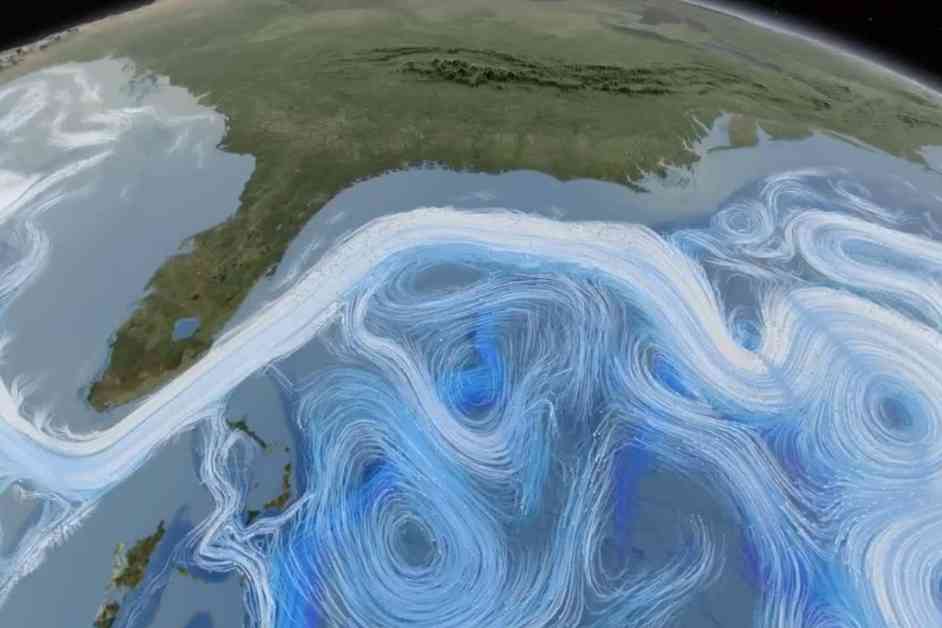The 2004 movie “The Day After Tomorrow” may have exaggerated climate science, but it did bring attention to the potential collapse of global ocean currents due to climate change. Recent studies suggest that the Atlantic meridional overturning circulation (AMOC) could collapse by the middle of this century, leading to significant impacts on the climate.
The AMOC is a crucial ocean system that regulates the flow of warm water and nutrients in the Atlantic Ocean. If it were to collapse, it could have far-reaching consequences for global weather patterns and ecosystems. However, these predictions are not without controversy, as some experts question the accuracy and timing of such a collapse.
In the past, researchers had limited knowledge about the state of the AMOC, but advances in technology and research have allowed for a better understanding of this complex system. The potential collapse of the AMOC is a concerning prospect that requires further study and monitoring to assess the risks accurately.
While the exact timeline and consequences of an AMOC collapse remain uncertain, the implications could be severe. Changes in ocean currents can disrupt marine life, alter weather patterns, and impact global temperatures. It is essential for scientists, policymakers, and the public to pay attention to these developments and take action to mitigate the effects of climate change on our oceans.
In addition to the potential collapse of the AMOC, other factors such as rising sea levels, ocean acidification, and loss of biodiversity also pose significant challenges to our marine ecosystems. Addressing these interconnected issues requires a coordinated effort at the local, national, and global levels to protect our oceans and ensure a sustainable future for generations to come.
As we look towards the future of our oceans, it is crucial to prioritize scientific research, conservation efforts, and climate action to address the threats facing marine environments. By working together to protect and preserve our oceans, we can safeguard biodiversity, support coastal communities, and mitigate the impacts of climate change on this vital ecosystem.






